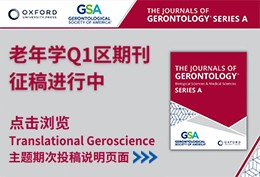样式: 排序: IF: - GO 导出 标记为已读
-
A whole new world, a new fantastic point of view: Charting unexplored territories in consumer research with generative artificial intelligence J. Acad. Mark. Sci. (IF 10.1) Pub Date : 2025-04-11 Kiwoong Yoo, Michael Haenlein, Kelly Hewett
Integrating generative artificial intelligence (AI), particularly large multimodal models (LMMs) like ChatGPT, into the research process offers significant opportunities for marketing scholars. This manuscript provides a field guide into the potential advantages and possible limitations of using LMMs in different stages of consumer research, including idea generation, theory development, pretesting
-
Salesperson pricing discretion: Exploring the contingent effects and customer outcomes J. Acad. Mark. Sci. (IF 10.1) Pub Date : 2025-04-10 Amalesh Sharma, Tarun K. Sharma, Wyatt A. Schrock, Eli Jones
There is tension among practitioners regarding whether to offer salesperson-level pricing discretion beyond discounts in B2B sales, with the literature providing mixed evidence. Using a multi-study approach, we explore the dynamics surrounding salesperson pricing discretion, addressing crucial gaps within the existing pricing discretion literature, especially concerning the contingent factors that
-
The past, present, and future of adaptive selling: Toward an integrative framework J. Acad. Mark. Sci. (IF 10.1) Pub Date : 2025-03-28 Nawar N. Chaker, Rhett T. Epler, Gabriel Moreno, Dana Amiri, Elizabeth G. McDougal, Jay O’Toole
Adaptive selling represents a notable and influential concept in the marketing literature. Despite being discussed in scholarly research and managerial practice for over forty years and mixed findings about its impact, a comprehensive understanding of the construct of adaptive selling remains missing. To remedy this critical knowledge gap, we conduct a comprehensive review of 188 articles across twenty-seven
-
Verbal persuasion in marketing: A multimethod meta-analysis of analytical and narrative processing J. Acad. Mark. Sci. (IF 10.1) Pub Date : 2025-03-20 Davide C. Orazi, Anne Hamby, Dennis Herhausen, Tom van Laer, Stephan Ludwig, Chahna Gonsalves, Dhruv Grewal
Customers process persuasive verbal messages through analytical or narrative routes. Extant marketing research offers limited findings regarding the relative effectiveness of different communication antecedents to these routes; neither does it sufficiently specify if and how communication modalities (written vs. audio) and product/service type (hedonic vs. utilitarian) moderate their impact. To address
-
Unintended consequences of selling B2B digital subscription add-ons for customer onboarding J. Acad. Mark. Sci. (IF 10.1) Pub Date : 2025-03-20 Lena Steinhoff, Jisu J. Kim, Vamsi K. Kanuri, Robert W. Palmatier
Business-to-business (B2B) software-as-a-service (SaaS) providers increasingly bundle add-on services with their core service. The implications of such bundles for onboarding customers to the relationship remain unclear; in particular, the common practice of trying to maximize add-on bundling during the customer acquisition phase arguably might conflict with goals to achieve long-term retention of
-
Generative artificial intelligence: Marketing’s death knell or ringing in a new era? J. Acad. Mark. Sci. (IF 10.1) Pub Date : 2025-03-17 Gaia Rubera, Weifeng Li, John Hulland
-
“We could be heroes”: Reflections on reimagining marketing strategies for a better world J. Acad. Mark. Sci. (IF 10.1) Pub Date : 2025-03-18 Kirk Plangger, Matteo Montecchi, Ko de Ruyter, Debbie I. Keeling, Maura L. Scott, Darren W. Dahl
-
Empowering GenAI stakeholders J. Acad. Mark. Sci. (IF 10.1) Pub Date : 2025-03-17 Erik Hermann, Stefano Puntoni
Generative Artificial Intelligence (GenAI) is transforming marketing not only by automating tasks and augmenting human capabilities, but also by reshaping stakeholder roles and experiences. This commentary explores the implications of empowering diverse stakeholders, marketers, consumers, contributors, and marketing academics, across four dimensions: operational, creative, agentic, and normative empowerment
-
Utilizing managerial beliefs for set identification of price elasticities of demand J. Acad. Mark. Sci. (IF 10.1) Pub Date : 2025-03-06 Rouven E. Haschka, Helmut Herwartz
Data-driven decision-making is increasingly prevalent but can clash with managerial beliefs, risking biased decisions. A prime example is pricing strategy optimization, where traditional methods for estimating price elasticities of demand often lead to counter-intuitive results due to model misspecification and the reliance on single-point estimates. To address this, we propose utilizing structural
-
Engagement in platform markets: A (video) game changer? J. Acad. Mark. Sci. (IF 10.1) Pub Date : 2025-03-04 Michiel Van Crombrugge, Stefan Stremersch
Empirical studies of two-sided platform markets, like the video game console industry, typically rely on software and platform sales data, thereby overlooking today’s managerial focus on engagement. This present research leverages a unique dataset tracking the daily engagement of over 14,000 users of Microsoft’s Xbox One and Xbox Series video game platforms to remedy this gap. We investigate how software
-
Trying not to spend J. Acad. Mark. Sci. (IF 10.1) Pub Date : 2025-03-04 Mary C. Gilly, Mary Finley Celsi, Stephanie Dellande, Hope Jensen Schau, Russel Nelson, Chin-May Aradhye
Financial literacy programs aim to prevent consumer overspending by teaching and encouraging fiscally sound habits (purchase restraint, responsible credit use, savings). Unfortunately, trying not to spend is at odds with the emotions consumers experience in a tempting marketplace. The theory of trying considers attitudes and intentions, but not emotions, when trying to consume. To address this gap
-
Old signals, new era: Reconsidering how customer satisfaction and employee satisfaction impact shareholder wealth J. Acad. Mark. Sci. (IF 10.1) Pub Date : 2025-02-21 César Zamudio, Suyun Mah, Vanitha Swaminathan
Extant research suggests that higher levels of customer and employee satisfaction signal a firm’s competitive advantage, resulting in greater firm value. This article advances the understanding of how firms can manage customer satisfaction and employee satisfaction to increase shareholder wealth in a new environment due to the emergence of social media and a new class of retail investors. Drawing from
-
The effect of customer-centric strategy and structure alignment on new product portfolio innovativeness and firm performance J. Acad. Mark. Sci. (IF 10.1) Pub Date : 2025-02-18 Soo Hyung “Ralph” Park, David A. Griffith
The authors build on configuration theory to argue that the alignment of a customer-centric strategy and a customer-centric structure allows a firm to increase firm performance through new product portfolio innovativeness. They further contend that the influence of customer-centric strategy-structure alignment on new product portfolio innovativeness can be amplified by increasing the firm’s strategic
-
Dynamics of pre-release consumer buzz: Driving communication, search, and participation for market performance J. Acad. Mark. Sci. (IF 10.1) Pub Date : 2025-02-15 Thomas F. Schreiner, Timo Mandler, Harald J. van Heerde, Carolin Haiduk
While pre-release consumer buzz may drive new product market performance, little is known about the importance of its distinct behavioral manifestations: communication, search, and participation. This paper not only studies how these three pre-release buzz behaviors affect market performance but also their dynamic interplay and how firms can drive pre-release buzz. Using movie data, we find self-enhancing
-
Stay or leave? How corporate responses to economic sanctions shape consumer reactions J. Acad. Mark. Sci. (IF 10.1) Pub Date : 2025-02-14 Xiang Fang, Zhiyong Yang, Kevin Kam Fung So, Yingying Shao, Zhuofan Zhang, Grace Fang Yu-Buck
Today, firms face mounting challenges due to increasing international conflicts, wars, and economic sanctions. Our research, based on nine studies employing both experimental methods and secondary data, examines how firms’ response strategies in sanctioned countries affect consumer reactions (attitude toward the company and word of mouth). Drawing on signaling theory and the literature on economic
-
Retailer marketing mix response when launching a direct channel: Not all retailers are alike J. Acad. Mark. Sci. (IF 10.1) Pub Date : 2025-02-14 Michiel Van Crombrugge, Els Breugelmans, Kathleen Cleeren, Scott A. Neslin
Many manufacturers introduce an online direct channel to create brand value that could benefit both manufacturer and retailers. However, retailers often view direct channel entry as a threat. Research on horizontal entry suggests retailers protect their sales by adjusting their marketing mix, particularly assortment and price. However, the direct channel is a vertical entry by a partner that is now
-
Inside sales structures and firm performance J. Acad. Mark. Sci. (IF 10.1) Pub Date : 2025-02-13 Molly Ahearne, Mohsen Pourmasoudi, Johannes Habel
Organizations face a considerable challenge in determining the appropriate balance between inside and outside salespeople, largely due to the uncertain effects that a high dependence on inside salespeople has on firm performance. To address this challenge, we employ a multimethod research design, combining a qualitative theories-in-use approach with a quantitative analysis using panel data from 194
-
Quest for insights: Leveraging data from the video game ecosystem in marketing J. Acad. Mark. Sci. (IF 10.1) Pub Date : 2025-02-04 Roman Welden, Michael Haenlein, Kelly Hewett, Keith Marion Smith, John Hulland
Over the past decade, video games have dramatically risen in popularity, and marketers have started recognizing the research opportunities video games provide. However, much of the current research in the gaming space focuses on the video game experiences of individual consumers, whereas other participants in the video game ecosystem are often ignored. In addition, research frequently uses traditional
-
Entering a complex market: How hybrid branding helps new brands create distinctive and resonant identities J. Acad. Mark. Sci. (IF 10.1) Pub Date : 2025-02-04 Nicole Gorman, Pierre-Yann Dolbec
In today’s competitive markets, creating a distinctive brand identity is crucial yet challenging, especially for new entrants. Complex markets with conflicting institutional logics offer unique opportunities to create a distinctive and resonant brand identity. We introduce hybrid branding as a novel strategy that resolves market-level cultural contradictions to create such identities. Our qualitative
-
When previous relationships limit the new: The interplay between product anthropomorphism and used products J. Acad. Mark. Sci. (IF 10.1) Pub Date : 2025-02-01 Hyokjin Kwak, Marina Puzakova, Ann L. McGill, Junhee Kim
This research contributes novel insights into consumer-brand relationships and pricing literature by establishing the negative impact of product anthropomorphism on buyers’ purchase intentions and purchase prices for used products. Drawing on prior research on relationship-dissolution stigma (a pervasive stereotype toward people with dissolved relationships), we show that buyers apply stigma attributions
-
Expectancy-disconfirmation and consumer satisfaction: A meta-analysis J. Acad. Mark. Sci. (IF 10.1) Pub Date : 2025-01-30 Tom Schiebler, Nick Lee, Felix C. Brodbeck
Expectancy-disconfirmation has been the dominant paradigm to explain the formation of consumer satisfaction for over 40 years. Within this paradigm, it is possible for expectations to have opposing effects on consumer satisfaction depending on the underlying psychological processes presupposed. In general, assimilation processes predict positive effects, while contrast processes predict negative effects
-
Influencer marketing unlocked: Understanding the value chains driving the creator economy J. Acad. Mark. Sci. (IF 10.1) Pub Date : 2025-01-24 Barak Libai, Ana Babić Rosario, Maximilian Beichert, Bas Donkers, Michael Haenlein, Reto Hofstetter, P. K. Kannan, Ralf van der Lans, Andreas Lanz, H. Alice Li, Dina Mayzlin, Eitan Muller, Daniel Shapira, Jeremy Yang, Lingling Zhang
As influencer marketing evolves into a dominant force in the marketing landscape, it necessitates a deeper theoretical exploration to understand its strategic implementations and impacts. This article examines the dynamics of influencer marketing within the growing creator economy, emphasizing the interactions among firms, influencers, followers, and digital platforms. We introduce a novel, equity-driven
-
Assortment management strategies that people see: Insights from a meta-analysis of experimental research on perceived assortment variety J. Acad. Mark. Sci. (IF 10.1) Pub Date : 2025-01-18 Victor D. Mejía
Assortment “variety” is a major factor influencing consumer attraction. Brands and firms use five assortment management strategies to improve consumers’ perception of variety (size, composition, arrangement, visual layout, and textual information). This paper breaks down Perceived Assortment Variety (PAV) into its constituent parts (numerosity and diversity) and investigates the effect of each strategy
-
Breaking bad news: How frontline employees cope with bad news disclosure to customers J. Acad. Mark. Sci. (IF 10.1) Pub Date : 2025-01-16 Cécile Delcourt, Dwayne D. Gremler, Dominique A. Greer
Disclosing bad news to customers during service encounters is an unavoidable, demanding task that can generate significant stress for frontline employees (FLEs). Despite the pervasiveness of bad news disclosure in service contexts, prior research has not explicitly examined how FLEs prepare for or optimize the delivery of bad news, whether to reduce their own work stress or to mitigate its negative















 京公网安备 11010802027423号
京公网安备 11010802027423号